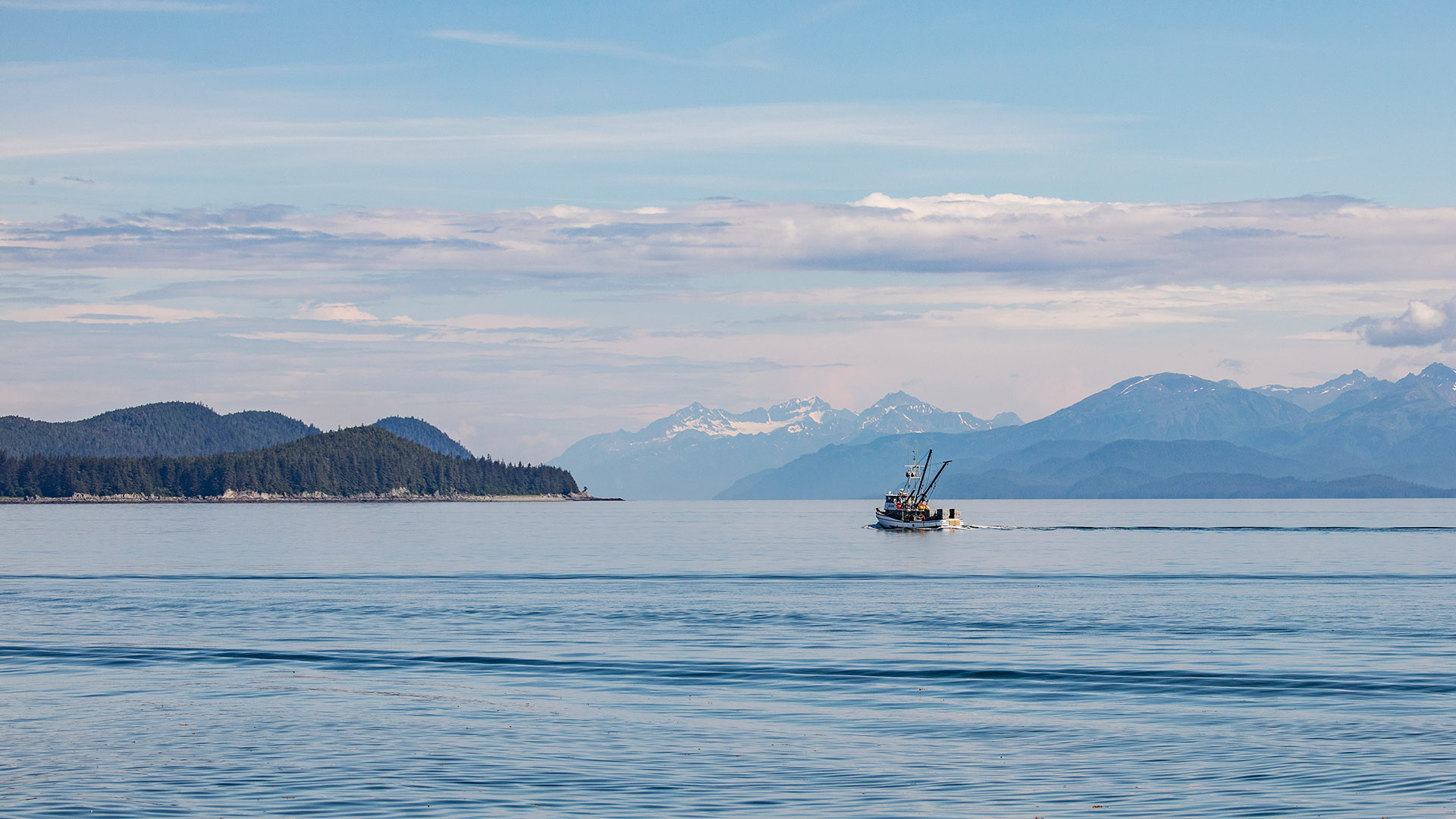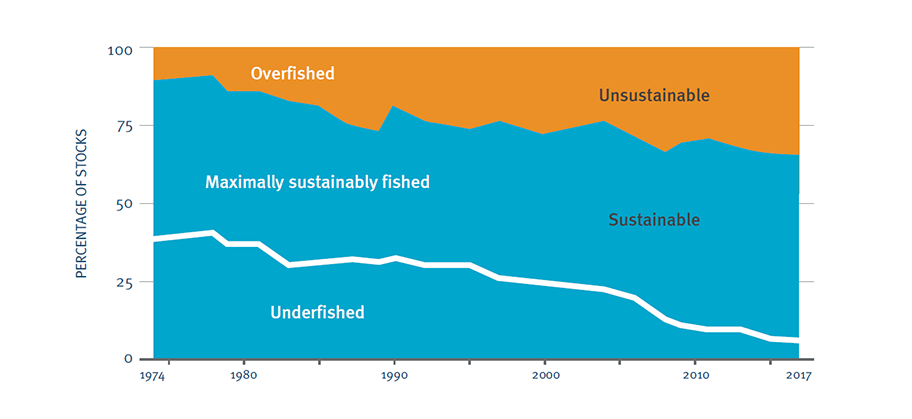The world is missing out on millions of tons of nutrient-rich seafood because of poor fisheries management.

The annual protein needs of 72 million people would be met if all the world’s fisheries were sustainably run, according to an analysis by the Marine Stewardship Council.
Effective management of fisheries is already helping stocks and ecosystems to recover. If this sustainable approach was applied globally, it would safeguard the number of fish that could be harvested in perpetuity.
“The world could eat more fish in the long term if we just tried to catch less in the short term,” said Dr. Rohan Currey, the MSC’s Chief Science and Standards Officer.
Seafood is nutrient-rich, giving just under half the world’s population (3.3 billion people) at least 20% of their daily animal protein intake.
But an increasing global population is putting pressure on this valuable resource. The world’s consumption of seafood has risen by 122% in the last 30 years with more than a third of global stocks now being fished beyond sustainable limits.
“Tackling overfishing is a ‘win-win’ for our planet,” said Dr. Currey. “By conserving our rich marine resources, we also enable more people to have the protein they need to live healthily.”
 Graph: Global trends in the state of the world's marine fish stocks, 1974-2017.
Graph: Global trends in the state of the world's marine fish stocks, 1974-2017.
Latest calculations suggest that if the world’s fisheries had been better managed, 16 million more tons of seafood could have been harvested every year, helping to feed a burgeoning population expected to reach 10 billion by 2050. The analysis shows that this provides enough protein for 72 million people – equal to the population of the UK and Ireland.
While the 16 million tons is dwarfed by the amount of food wasted every year, Dr. Currey says tackling the food gap has “multiple dimensions” with decreasing waste a part of that. “Increasing our food supply in a way that can be sustainably managed is also crucial.”
It comes as time is running out to reach the UN Sustainable Development Goals (SDGs) by 2030 which supports sustainable food production systems and targets the end of overfishing.
To meet the demands of a world population expected to reach nearly 10 billion by 2050, the World Resources Institute estimates that the planet will need a 50% increase in global food production from now.
MSC certified fisheries are delivering on at least 34 SDG targets, specifically supporting progress towards ending hunger and securing the health of the world’s oceans.
“Future generations have the right to sustainable food sources,” said Dr. Currey. “As the global population continues to rise, the need to harness our natural resources responsibly is more urgent than ever.”
Further research has suggested that millions of people in food-deficient countries could avoid under-nourishment if fisheries were not overexploited and local resources unfairly allocated.
For many coastal countries in the Global South where nutrient intake is inadequate, marine catches could provide more than the dietary requirements for people living within 100 km of the coast. A fraction of current landings would potentially transform the situation for children – especially the under-fives.
More fisheries than ever before are adopting sustainable fishing practices.
In 2020 there were 409 fisheries around the world certified to the MSC’s sustainability standard, with another 89 undergoing assessment. In order to be MSC certified, a fishery must show the fish stock is healthy, that it minimizes its impact on the environment, and has effective management in place.
 Namibian hake dock workers © Oliver Binneman
Namibian hake dock workers © Oliver Binneman
The Namibian hake fishery is one such example. Historically exploited by international fleets, annual catches of Namibian hake had caused severe consequences for the region’s marine ecosystem.
Following independence, Namibia’s Marine Resources Act of 2000 was hailed as one of the most progressive and successful fisheries policies.
After ten years of working with the MSC, the Namibian hake fishery was certified this year, opening access to European markets. The result is that Namibian hake stocks have doubled in size and the hake industry has become a key employer of women.
To accelerate change, fisheries need the support of governments to ensure that catch limits are in line with scientific advice, that illegal, unregulated, and unreported (IUU) fishing is tackled, and that harmful subsidies that encourage overfishing around the world, are eliminated.
“We know the practices that need to be adopted in order to enable sustainable fishing,” said Dr. Currey. “What we need now is international will and cooperation to implement these across all waters, borders, and species globally.”
